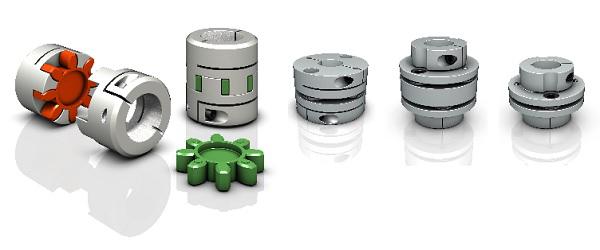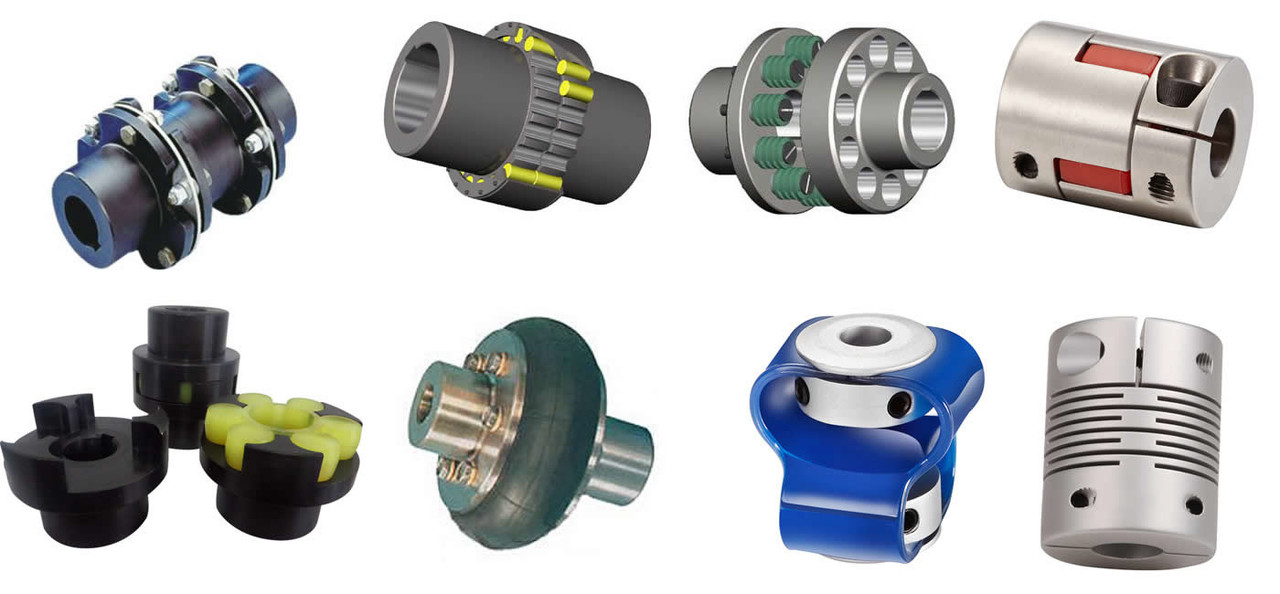Jaw Shaft Coupler
Introduction to Jaw Shaft Couplers
Jaw shaft couplers, also known as jaw couplings, are mechanical devices used to connect two shafts together at their ends for the purpose of transmitting power. They are widely recognized for their versatility and reliability in various industrial applications.
Types of Jaw Shaft Couplers
There are several types of jaw shaft couplers, each designed to meet specific requirements. The most common types include standard jaw couplers, curved jaw couplers, and zero backlash jaw couplers.
Standard Jaw Couplers
Standard jaw couplers are constructed with three jaws made from high-quality aluminum or stainless steel. They provide excellent torque transmission and are ideal for general-purpose applications.
Curved Jaw Couplers
Curved jaw couplers are designed with a curved profile that helps to reduce backlash and misalignment issues. These couplers are often used in precision applications where accuracy is paramount.
Zero Backlash Jaw Couplers
Zero backlash jaw couplers are engineered to eliminate backlash entirely, ensuring smooth and precise motion control. They are commonly used in CNC machines and robotics.
Construction and Materials
Jaw shaft couplers are typically made from robust materials such as aluminum, stainless steel, or polyurethane. The choice of material depends on the specific application and operating environment.
Advantages of Jaw Shaft Couplers
Jaw shaft couplers offer several advantages, including high torque capacity, ease of installation, and the ability to absorb shock loads. They are also known for their durability and long service life.
Applications in Industry
Jaw shaft couplers are used in a wide range of industries, including automotive, manufacturing, and aerospace. They play a critical role in ensuring the smooth operation of machinery and equipment.
Installation and Maintenance
Installing jaw shaft couplers is a straightforward process that involves aligning the shafts and tightening the set screws. Regular maintenance is essential to ensure optimal performance and longevity.
Troubleshooting Common Issues
Common issues with jaw shaft couplers include misalignment, excessive wear, and vibration. Proper installation and regular inspection can help to mitigate these problems.
Customization Options
Many manufacturers offer customization options for jaw shaft couplers, allowing customers to specify the size, material, and design features that best meet their needs.
Comparing Jaw Couplers with Other Types
When compared to other types of couplers, such as gear or grid couplers, jaw shaft couplers offer unique benefits, including simplicity and cost-effectiveness.
Environmental Considerations
Jaw shaft couplers are designed to operate in various environmental conditions, from extreme temperatures to corrosive environments. Selecting the appropriate material is crucial for ensuring performance.
Future Trends in Jaw Couplers
The future of jaw shaft couplers lies in advanced materials and precision engineering, which will further enhance their performance and application range in emerging technologies.
Conclusion
Jaw shaft couplers are indispensable components in mechanical systems, offering reliability and versatility across numerous applications. Understanding their features and benefits can help in selecting the right coupler for any specific need.

What are the three types of coupling?
Couplings are essential in mechanical systems for connecting two rotating shafts. The three primary types of shaft couplings are:
- Rigid Couplings: These couplings are used where precise alignment of shafts is crucial. They do not allow for any misalignment and are best suited for applications where shafts are well-aligned and rigid.
- Flexible Couplings: These are designed to accommodate misalignment between shafts. They can absorb shock and vibration, making them suitable for applications where slight shaft movement is expected.
- Fluid Couplings: Utilizing hydraulic fluid to transmit torque, these couplings are typically used in heavy-duty applications where smooth operation and variable speed control are required.

What coupling is used to connect two shafts?
Various couplings can be used to connect two shafts, with the choice depending on several parameters and actual conditions:
- Torque Requirements: The amount of torque to be transmitted is a critical factor in selecting the appropriate coupling type and size.
- Shaft Alignment: The extent of misalignment between the shafts determines whether a rigid or flexible coupling is needed.
- Operating Environment: Environmental conditions such as temperature, humidity, and exposure to chemicals can influence the material and design of the coupling.
- Speed and Performance: The rotational speed and performance requirements of the system will affect the choice of coupling.
- Space Constraints: The available space for the coupling installation can limit the size and type of coupling that can be used.

What are the two general types of shaft couplings?
The two general types of shaft couplings are:
- Rigid Couplings: These are used in applications where precise alignment is maintained and no relative motion between shafts is expected. They provide a strong and permanent connection.
- Flexible Couplings: These allow for some degree of misalignment and can accommodate axial, radial, and angular misalignments. They are ideal for applications where shafts may experience movement or misalignment.
HZPT is located in Hangzhou, Zhejiang Province, and is a modern enterprise integrating R&D, manufacturing, production, and international trade. We adhere to the core values of ¡°integrity¡± and pursue a business philosophy characterized by unity, progress, and innovation. We focus on the research and innovation of coupling products, with a business scope that spans Asia, Europe, Africa, and North America, moving towards the vision of becoming a globally influential international group.
Our company specializes in producing drum couplings, spring pin couplings, serpentine spring couplings, universal couplings, star couplings, expansion couplings, diaphragm couplings, tire couplings, and other series of coupling products. We have a complete and scientific quality management system, along with our own technology development and testing department. We hold certifications such as CQC, ISO, and CE. We can provide excellent sales service and technical support to our customers, servicing more than a hundred cooperative enterprises. We adhere to the business philosophy of “people-oriented, customer first,” and work sincerely with our customers for mutual development.
Our company professionally produces and sells shaft couplings. We recommend our products to you for the following reasons:

- High-Quality Materials: Our couplings are made from top-grade materials, ensuring durability and reliability in various applications.
- Customizable Options: We offer tailored solutions to meet specific customer requirements, including size, material, and design features.
- Advanced Technology: Our R&D department utilizes cutting-edge technology to innovate and improve coupling performance continually.
- Global Reach: With a robust international trade network, we provide timely and efficient service to customers worldwide.
- Comprehensive Quality Control: Our stringent quality control measures ensure that every product meets industry standards and customer expectations.